Pierre Ailliot
Learning the spatio-temporal relationship between wind and significant wave height using deep learning
May 26, 2022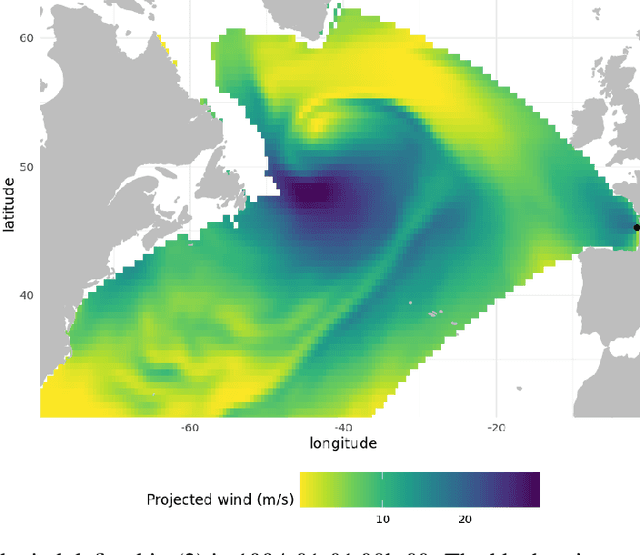

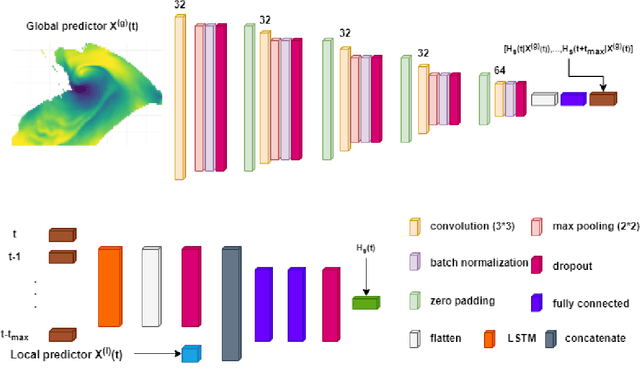
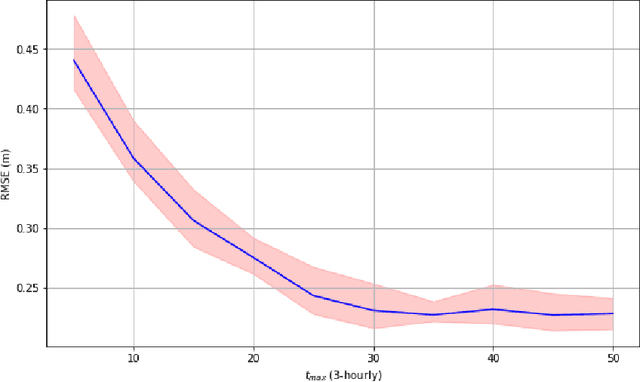
Abstract:Ocean wave climate has a significant impact on near-shore and off-shore human activities, and its characterisation can help in the design of ocean structures such as wave energy converters and sea dikes. Therefore, engineers need long time series of ocean wave parameters. Numerical models are a valuable source of ocean wave data; however, they are computationally expensive. Consequently, statistical and data-driven approaches have gained increasing interest in recent decades. This work investigates the spatio-temporal relationship between North Atlantic wind and significant wave height (Hs) at an off-shore location in the Bay of Biscay, using a two-stage deep learning model. The first step uses convolutional neural networks (CNNs) to extract the spatial features that contribute to Hs. Then, long short-term memory (LSTM) is used to learn the long-term temporal dependencies between wind and waves.
Locally-adapted convolution-based super-resolution of irregularly-sampled ocean remote sensing data
Sep 27, 2017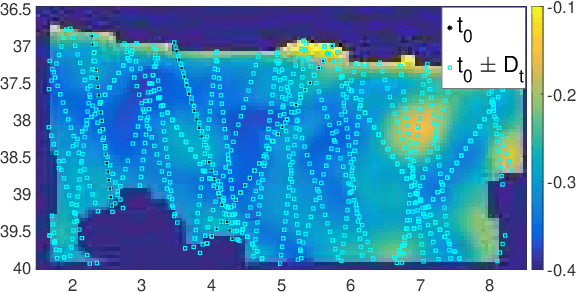
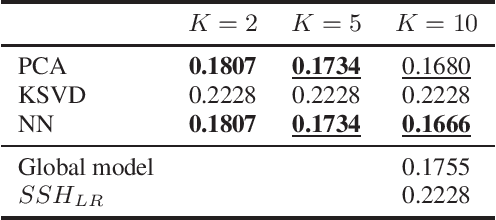
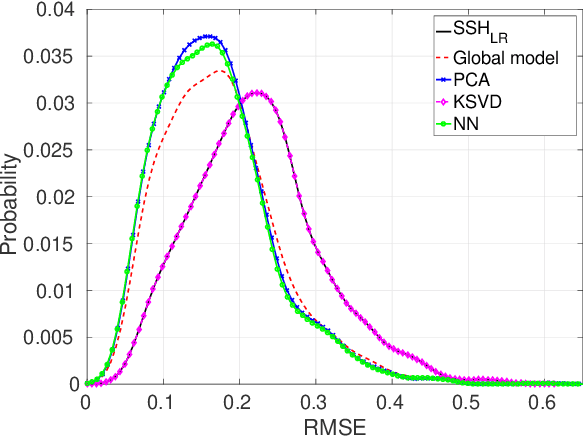
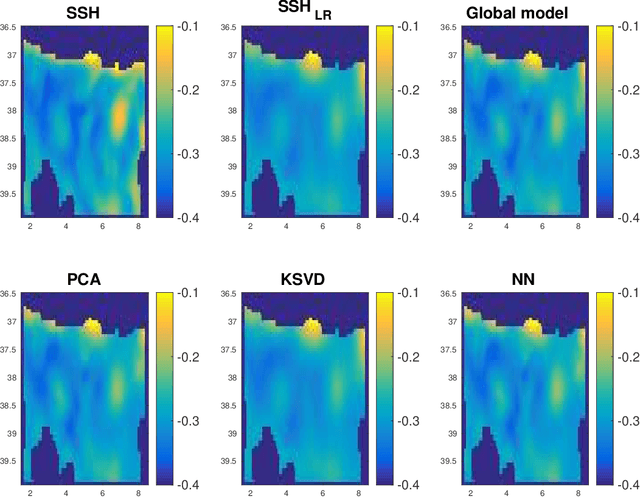
Abstract:Super-resolution is a classical problem in image processing, with numerous applications to remote sensing image enhancement. Here, we address the super-resolution of irregularly-sampled remote sensing images. Using an optimal interpolation as the low-resolution reconstruction, we explore locally-adapted multimodal convolutional models and investigate different dictionary-based decompositions, namely based on principal component analysis (PCA), sparse priors and non-negativity constraints. We consider an application to the reconstruction of sea surface height (SSH) fields from two information sources, along-track altimeter data and sea surface temperature (SST) data. The reported experiments demonstrate the relevance of the proposed model, especially locally-adapted parametrizations with non-negativity constraints, to outperform optimally-interpolated reconstructions.
 Add to Chrome
Add to Chrome Add to Firefox
Add to Firefox Add to Edge
Add to Edge